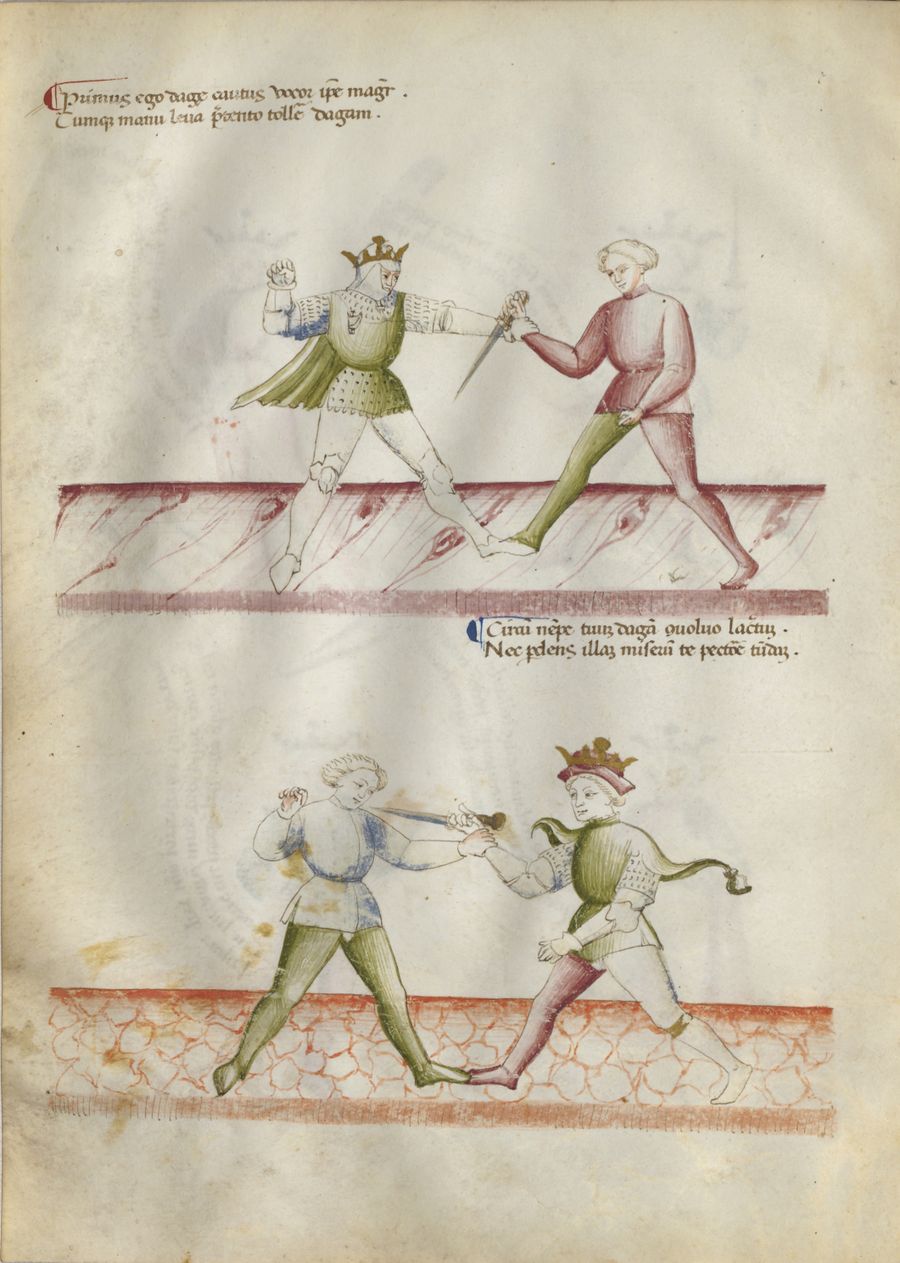|
|
You are not currently logged in. Are you accessing the unsecure (http) portal? Click here to switch to the secure portal. |
Difference between revisions of "User:Kendra Brown/Florius/English MS Latin 11269 21v"
(→notes) |
|||
| Line 35: | Line 35: | ||
* cautus (from cavere) is a common term in Roman jurist texts, where it means security in the sense of assurance or collateral | * cautus (from cavere) is a common term in Roman jurist texts, where it means security in the sense of assurance or collateral | ||
* the second word of the second line in the lower register can also be read "perdens" | * the second word of the second line in the lower register can also be read "perdens" | ||
| − | |||
[[file:MS Latin 11269 21v.jpg|900px]]</noinclude> | [[file:MS Latin 11269 21v.jpg|900px]]</noinclude> | ||
Revision as of 19:23, 21 May 2024
Contents
Latin 21v
¶ Primus ego dagae cautus[1] vocor ipse magister.
Cumque manu leva pretento tollere dagam.
- ¶ Circum nempe tuum dagam convolvo lacertum.
Nec perdens illam miserum te pectore tundam.
Italian
|
I am the First Master of the Dagger, full of guile, |
[6a-e] Magistro primo son de daga pieno de ingano |
|
If I make a turn around your arm with my dagger, |
[6a-f] Cum mia daga intorno tuo braço faro volta |
English 21v
¶ I am called the Cautious One, that is, the first master of the dagger.
You lift with your hand and extended [arm][2] to steal the dagger.
¶ To be sure, I twist my dagger around your shoulder.
Without forfeiting that [dagger] I will beat you, the Wretched One, in the chest.
notes
- cautus (from cavere) is a common term in Roman jurist texts, where it means security in the sense of assurance or collateral
- the second word of the second line in the lower register can also be read "perdens"

